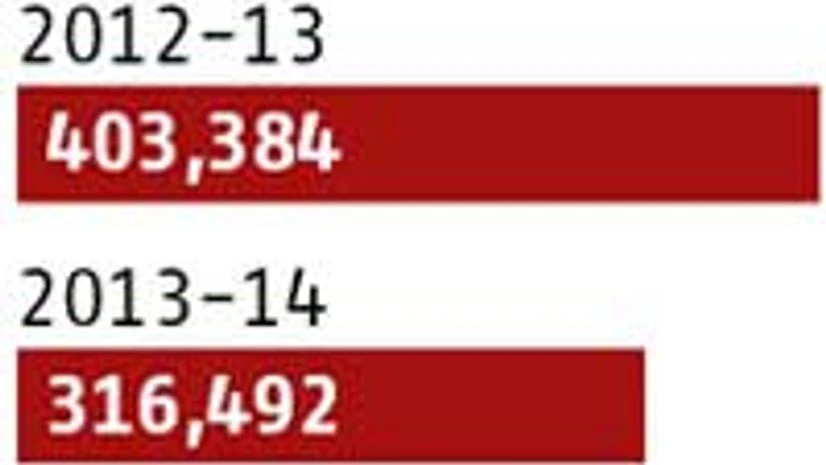Government-owned companies are obsessed with raising production year-on-year, irrespective of market behaviour. This is because production volumes are an important yardstick with which performances of public sector undertakings are judged. So, when a couple of years ago, National Aluminium Company (Nalco), under now-retired chairman Ansuman Das proposed rationing of output for profit improvement, it was received with much skepticism in the mines ministry and with great reservation by employees at the smelter in Odisha's Angul. However, an unwavering Das noted that as the company was not getting enough from Mahanadi Coalfields (MCL), with which it had a long-term supply agreement, it was importing thermal coal by paying a high premium. Coal imports to run the 1,200-Mw captive power plant to capacity did not, however, find justification at the aluminium prices prevailing then.
Nalco's bottom line improvement, more precisely return per unit of metal output, demanded that aluminium production be strictly in alignment with coal available from MCL. Starting the second half of 2012-13, smelting was steadily lowered to 403,384 tonnes for that year. In the following year, it was down to 316,492 tonnes. Improvement in domestic coal supplies led to some improvement in aluminium production to 328,000 tonnes in 2014-15.
In the best of times in 2010-11, the company's production of metal was at an all-time high of 443,597 million tonnes (mt) and net profit similarly Rs 1,069 crore. As it had to be, the winding down of metal production left the company with more and more surplus of smelter feedstock alumina, which was exported.
Energy, which has the biggest share in the white metal's production cost, remains the most important determinant of competitiveness and profitability of aluminium producers. No wonder that in recent times, growth in aluminium smelting capacity has been the fastest in West Asia, where gas is abundantly available. Emirates Global Aluminium, jointly owned by Investment Corporation of Dubai and Mubadala Development Company, with a 2.4 mt capacity, is counted among global leaders. Aluminium Bahrain has capacity of about one mt. However, producers drawing energy from coal-fired power plants are relishing major falls in coal prices. The 20 per cent correction in benchmark Asian coal prices over the past 12 months is due to global oversupply.

Indonesian Coal Mining Association Chairman Pandu Sjahrir said the country's coal production in 2015 could be down to anything between 350 mt and 400 mt from 458 mt last year. The south-east Asian country, the world's largest exporter of thermal coal, is to see a fall in production two years in a row.
Das' colleagues recall him telling them "once Asian coal prices are down to our comfort level and MCL supplies have improved, we should go ahead and ramp up production,". Global coal prices having lost 60 per cent since early 2011 due to anaemic world economic growth and MCL honouring delivery commitments, unlike in the past, have led Nalco to set a production target of 380,000 tonnes this year. Assuming the target will be achieved, Nalco will still be leaving 80,000 tonnes smelting capacity unused. However, the country, which experienced a fall of about six per cent in primary aluminium consumption to 1.58 mt in 2013-14, thanks mainly to poor offtake from the electrical sector and demand taking a hit once again last year, was better off with a large portion of Nalco capacity idle.
While there are still no signs of aluminium demand improvement, industry leader Hindalco is increasing production at its two new smelters with capacity of 360,000 tonnes each. Demand deceleration in the face of growing capacity has turned the country into a net exporter of the metal, smelting of which requires a lot of electricity. In any case, in the event MCL fully discharges the linkage commitment, Nalco will still be in a coal deficit. Its coal requirements for operating the captive power complex are around 6.6 mt against MCL supply commitment of 4.8 mt. Importing coal at whatever cost to finally export aluminium is certainly not in the country's interest.

)
